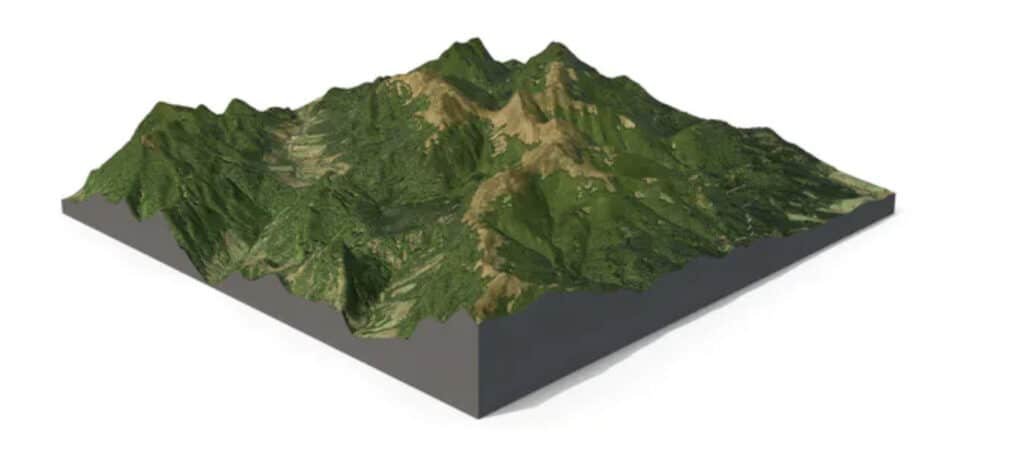Purchasing Land in Bangladesh in 2023
Whoever has ownership rights of immovable property and is recorded as such in records of rights or other public documents in which a record of ownership is entered or maintained is regarded as the legal owner of immovable property and has the right to transfer such property in whole or in part.
Even if a person is not the owner of immovable property, but is legally authorized by the owner to transfer it, that person may also transfer the property.
Possessors of immovable property may assert ownership of the property, but mere possession of an immovable property does not make a person the property’s true owner.
As you are no doubt aware, title to immovable property can be acquired via purchase, long-term lease, gift, inheritance, etc. To determine the real owner in possession who can sell the property, it is essential to examine records of rights or other public documents in which ownership information is recorded or maintained.
Confirm the rights record with the Land Office
The land administration system in Bangladesh segregates ownership records and revenue records. We have Land Records Offices for land records, surveys, publication, and record maintenance under the Ministry of Land’s directorate of land records and survey.
Land Revenue Offices exist in Bangladesh under the Ministry of Land. Each subdistrict (upazila) contains eleven administrative offices. Bangladesh has 64 districts, but only 61 of them have registration facilities.

Three of the hill districts lack registration centers. Under the Ministry of Law, the district land registration office in Dhaka has thirteen Sub-registrar offices.
Check and verify the Bia Deeds, Khatiayans, and Mutations in favor of the Seller.
If the present Seller acquired the land through a Purchase, the present purchaser must first examine all such Sale Deeds (Bia Deed) to determine the land’s chain of ownership, with a minimum of 25 years’ worth of chain of ownership preferably being determined.
The second step involves requesting documents in Khatain format from the Seller. The buyer must examine the Khatiayan records (C.S., S.A. R.S., B.S./City Jarip) provided by the seller and confirm with the seller’s attorneys whether the supplied documents establish the seller’s ownership (either through purchase or inheritance).
Draft/Khosra Khatiyan provided by the seller is ineligible for record verification; purchasers should request copies of certified/printed Khatiyan.
In addition to comparing the Khatiyan to the records at the Deputy Collectors Office, the buyer should verify the Khatiyan with the records at the Deputy Collectors Office. Particular emphasis should be placed on the last two Khatiyan of the relevant property.
Is the acquisition of land in Bangladesh a wise investment?
According to a popular saying, land is one of the safest investment options, especially in Bangladesh. While the rate of inflation is rising and the value of currency is falling, investing in a tangible asset such as land in such a populated country is rationally a wise decision. However, this investment also depends on a number of variables.
Location
Location plays a significant role in the overall ROI of land acquisition.
A simple illustration will make it clear. A survey reveals that the price of land per katha in the Gulshan region increased by more than 1,036% between 1990 and 2010. And the situation is comparable in urban areas across the nation.
Compare stocks and bonds to determine the best investment opportunity.
Zoning Regulations
The cost of land depends on zoning regulations as well. There may be zoning regulations for commercial, residential, and office spaces, for instance. Some areas may be zoned against the development of new structures. Before purchasing land, it is vital to examine the zoning regulations.
Upfront Price
Land acquisition is not like any other transaction. The upfront costs associated with the survey, registration, and taxes should be factored into the total investment decision.
Long-Term Expenditure
Buying land as an investment is a long-term endeavor. The value of land does not increase overnight. It could be years or decades before there is a significant value increase. Therefore, long-term commitment should also be taken into account when investing in land.

Considerations Before Purchasing Land
Prior to purchasing land, there are numerous factors to consider. Aside from standard pricing and market overviews, a buyer of immovable property, such as land, should consider several ownership and transfer of ownership factors.
Rights/Ownership Rights Document
Multiple government documents issued by the land office under the Ministry of Land establish land ownership. These documents are the legal tender that verify ownership and the ability to transfer ownership to another individual.
Which is the Better Investment Option: Land or an Apartment?
A land attorney should review the pertinent documents to ensure that no fraudulent activities are associated with the property.
Sales Deed
The sales deed is the document that outlines the land’s ownership through the generations. The detailed sales deed can be found at the local sub-registry office. A certified copy of the sales deed can be obtained by paying the government-mandated fees.
At least ten to twenty-five years of sales deeds should be reviewed to ensure that there are no land ownership issues. In the event of an inheritance, the inheritance deed (“Bontonnama”) must also be examined.
Apartment Purchasing Mistakes to Avoid to Protect Your Investment
Khatiyan/Porcha
The “Khatiyan” and the “Porcha” are the land authority’s records of rights against the land’s actual ownership. The Khatiyan or Porcha should be compared to the sales deed in order to determine the legitimacy of the land’s ownership.
There are two types of Khatiyan: certified and draft. It is preferable to avoid a Khatiyan draft.
Land Regulation (Khas/Auctioned/Unauthorized)
The local land office (Tohsil) should also have information regarding whether or not the land has previously been auctioned. In such cases, Section 7 of the Government Claims Act of 1993 can prohibit the purchase or sale of such land.
If the land was ever put up for auction, the auction details can be found in the Khatiyan’s footnote.
A prospective purchaser should also determine if the land is “Khas” or unapproved. Numerous lands are Khas (government-owned), abandoned, unapproved, or acquisition-approved. Occasionally, individuals with forced acquisition (“Dokhol”) attempt to sell these lands as genuine Khatiyan cleared lands.
The land condition information is also available at the DC office for a nominal fee. Any land that falls into any of the aforementioned categories should be avoided at all costs.
DAG
DAG is the land office registry of the land area under the record of rights’ ownership. A prospective purchaser should compare the DAG size listed in the property records with the property’s square footage.
Legal Issues

Additionally, the property should be cross-checked to determine whether or not it has ongoing legal issues. If there is a building on the land in question, its construction documents and permits should also be examined to determine whether they comply with the regulations.
Transferable Duties
There are numerous expenses associated with the property transfer. Obtaining the non-encumbrance certificate is the primary prerequisite for initiating the process of transferring the property.
After that, a legal stamp outlining the transfer of the property should be signed. This stamp is typically worth 3% of the property’s value. The property must then be registered with the sub-registry office under the new owner.
As soon as possible, the Khatiyan, Porcha, and sales deed should be updated to prevent any future issues with the transfer. This will ensure that there are no legal complications when the land is resold.
Physical Land Survey
Most importantly, the Purchaser must conduct a physical land survey. This will also provide current conditions and confirm ownership of the property.
Verification of Ground Rate Payment for the Property
Additionally, the Purchaser should request from the Vendor proof of current Ground Rent payment for the prospective property. Notably, if the Ground Rate is ambiguous, the sub registrar’s office may refuse to register the property in the seller’s name.
Multiple Vendors
If land is recorded in the seller’s predecessor’s name, a Warishan certificate issued by the local government’s representative in favor of the seller must be verified.
In addition, Registered Deed of Partition/Bia Deed must be verified if the land is sold by some of the successors but not all.
If the land is sold by an authorized representative, a Registered Power of Attorney is necessary.
Obtain the certificate of no encumbrance from the appropriate sub-registry office
The purchaser must verify the land’s legal status (mortgage, lease, or ownership) at the relevant Sub-registry office. Since January 2012, both Sub-registry and Land Revenue Offices issue certificates of no encumbrance. Occasionally, a land report is required.
A land report provides information regarding the current status and ownership of the land, which may include the chain of ownership, land tax, land record, registry status, etc., whereas a non-encumbrance certificate is used in real estate transactions as evidence of the property’s ownership.
Prepare transfer deed and pay stamp duty
The transfer deed may be drafted by an attorney, but it may also be drafted by the parties themselves. The deed must be prepared on stamped paper, which should cost three percent of the property’s value. This represents the tax on stamps. Additionally, any Baina Deed executed between a seller and a buyer must be registered.
At a designated bank, pay capital gains tax, registration fee, VAT, and other taxes.
The registration fee must be paid to the bank in favor of the sub-registry office, and the receipt must be presented at the time of application.
The purchaser is responsible for remitting the local government tax to the appropriate city corporation or municipality office. In addition, a capital gains tax (CGT) and a value-added tax (VAT) of 1.5% (applicable only for municipal corporation area and payable by private housing and apartment developers and commercial businesses) must be paid at this point. The capital gains tax does not apply to agriculture in rural areas.
Submit an application for registration at the appropriate Sub-registry:
At this point, the purchaser may submit an application for registration at the relevant Sub-Registry Office, along with receipts for payment of registration and other fees. Within one week, a certified registration document is obtained for the buyer’s files. Obtaining the original sale deed or certificate takes approximately six months.
Register the transfer with the Land Revenue Office:
The transfer of property must be recorded with the Land Revenue Office. The property is recorded under the new owner’s name, and he or she is responsible for paying the land taxes as of the date of transfer.

It is necessary to submit a property-specific application to the applicable AC. The assistant commissioner will forward the request to the relevant Tahsil office, which will conduct the necessary survey and provide a report to the assistant commissioner of land.
AC Land will issue Mutation Khatiyan in the name of the new owner along with a Duplicate Carbon Receipt (DCR) upon approval of the report.
In the application form, the applicant must include their names and addresses, a detailed description of the land and its surrounding boundary, the land’s size, nature, and identification, as well as the registered deed number and registration date.
In addition, the applicant must include a copy of the main deed, a copy of the via deed, a copy of Khatiyan, a receipt for payment of land development tax, proof of means to acquire ownership, i.e. partition deed, a copy of the decree or judgment obtained from the competent court (if any), a passport-sized photograph of the applicant, etc.
It is important to note that neither a middleman nor additional funds are required for land mutation. However, the entire mutation process must now be completed within 60 days in metropolitan areas and 45 days in all other regions.
If the AC (Land) refuses to change the applicant’s name due to a lack of documents or for any other reason, the applicant may appeal to the Additional Deputy Commissioner (Revenue) within 30 days of the refusal. However, anyone can appeal the Additional Deputy Commissioner’s decision to the Additional Divisional Commissioner (Revenue) within the next 30 days.
Finally, the complainant has another opportunity to appeal a questionable order issued by its immediate superior authority to the Land Appeal Board within ninety days. A person may also submit a request for review within 30 days of the date of the initial denial, but in that case, the right to appeal is lost.
Including the Land in the most recent survey (B.S./City jarip)
The purchased land should, if possible, be recorded under the most recent survey (i.e. B.S. Jarip or City Jarip) if these surveys are being conducted in the area where the land is located in the name of the current owner.
Additional requirements for Certain Land Types (Waqf, Lease, Khas Land)
- Transferring or mortgaging Waqf property requires the prior approval of the Waqf Administrator, and the Sale Deed must be executed by an authorized Mutawalli.
- Whenever a Lease property from RAJUK/CDA (Rajdhani Unnayan Kartripakkha) is transferred, the Ministry of Housing & Public Works must grant permission.
- Regarding Khas land, neither sale nor mortgage are permitted. Before purchasing any type of land, it must be determined whether the land is Khas land or not.
- In the case of Shikosthi Jorip (river-eroded land), it is extremely challenging to obtain mutation of that land. Therefore, it must be determined whether or not the land falls under Shikosthi Jorip.
From the Tohasil office/Upazila Land office, the buyer must determine whether the land’s certificate is being litigated or whether the land has been auctioned. The buyer must keep in mind, however, that Section 7 of the Government Payment /Claim Act of 1993 states that the property listed on the certificate is not eligible for sale.
From the Tohsil office, the LA branch of the Upazila Land office, or the Deputy Commissioner Office (DC office), it is necessary to determine whether the land in question is Khas, abandoned/unapproved, or marked for acquisition. Additionally, purchasers must ensure that the sale of the land is not prohibited by existing laws.
It is necessary for the buyer to determine whether or not a lawsuit has been filed against the property he or she intends to purchase.
However, the land in question should not be acquired. If there is a structure on the property, such as a building or apartment, the buyer must examine the building plan and the approval letter to ensure that the structure was constructed according to the blueprint.
The sub-registry office or the district registrar’s office should be contacted for the most up-to-date registration information.
The record of land tax (Khajna) should be examined. If a property’s land tax is not paid, the government may seize the property.
If the preceding steps are followed, one can reduce the likelihood of legal complications arising from the purchase of land.
How to Hire the best lawyers in Bangladesh to successfully purchase a land in Bangladesh:
If you want lawyers who can help you with acquiring a land in Bangladesh effortlessly, you came to the right place. We, at Tahmidur Rahman Remura Wahid TRW, we have acquired land on behalf of a lot of clients. Sometime, we take care of the whole process and our clients delegate the whole responsibility to us through a Power of Attorney.
We have also acquired land on behalf of world class manufacturing companies in several economic zone throughout the country. We bought lands on behalf of Fortune 500 companies (including but not limited to: Mitsubishi, Yabang, Miago, Marubeni etc.) and dispatched the responsibility from physically surveying the land, vetting, registering and then eventually doing the namjari on behalf of our clients.
If you want to hire Tahmidur Rahman Remura Wahid TRW to purchase your land in Bangladesh:
GLOBAL OFFICES:
DHAKA: House 410, ROAD 29, Mohakhali DOHS
DUBAI: Rolex Building, L-12 Sheikh Zayed Road
LONDON: 1156, St Giles Avenue, Dagenham
Email Addresses:
info@trfirm.com
info@tahmidur.com
info@tahmidurrahman.com
24/7 Contact Numbers, Even During Holidays:
+8801708000660
+8801847220062
+8801708080817
